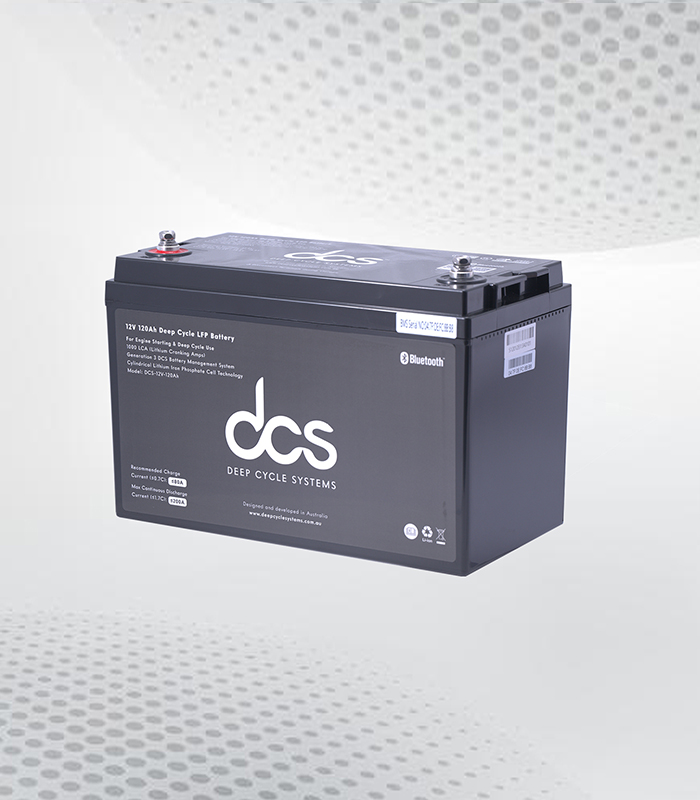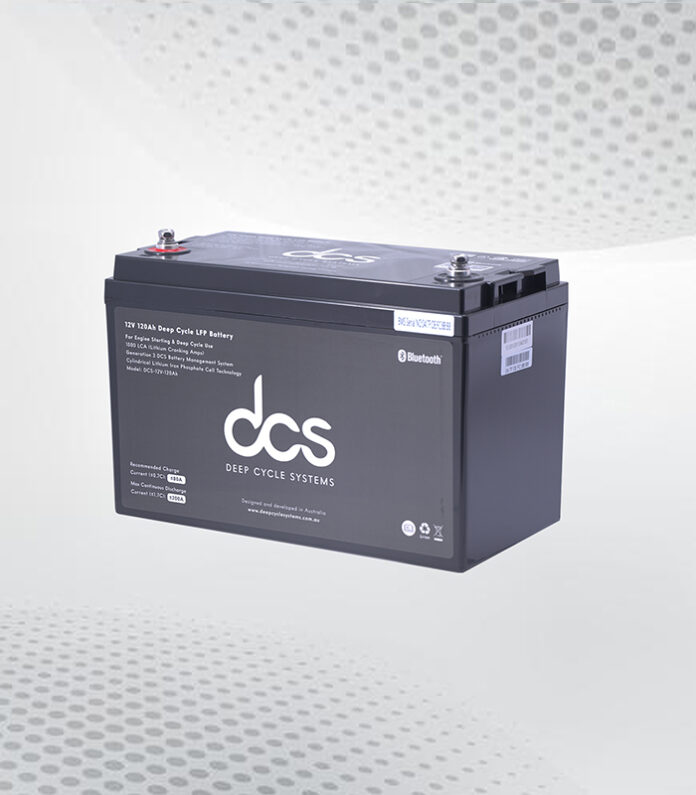In an era where our devices are an extension of ourselves, the constant quest for power and efficiency has become a top priority. With the rapid evolution of technology, our gadgets are becoming more sophisticated, yet their battery life remains a significant concern. The 120Ah battery is a game-changer in this landscape, offering a remarkable leap in energy storage capacity. This cutting-edge technology can potentially revolutionise how we live, work, and play. In this post, we’ll delve into the world of 120-Ah batteries, exploring their capabilities, benefits, and the endless possibilities they bring to the table.
Understanding the 120-Ah Battery: What Makes It Special
The 120-Ah battery is a game-changer in the world of portable power. At its core, this battery is designed to provide unparalleled energy storage capacity, allowing your devices to run longer without recharging. But what makes it so unique? The 120-Ah battery boasts a significantly higher energy density than its predecessors, meaning it can pack more power into a smaller, more compact design. This makes it ideal for use in many applications, from camping trips to medical devices, where space is at a premium.
The 120-Ah battery features advanced technology that enables it to maintain a consistent power flow even as its charge dwindles. This results in a more reliable and efficient power supply, giving you the confidence to take your devices on the go without worrying about running out of juice. Whether you’re an outdoor enthusiast, a medical professional, or simply someone who wants to stay connected on the go, the 120-Ah battery is the perfect solution for empowering your devices.
Advantages of 120-Ah Batteries Over Lower Capacity Options
120-Ah batteries offer several advantages over lower-capacity options, making them highly suitable for various applications requiring robust and long-lasting power solutions. One primary advantage is their significantly higher energy storage capacity compared to lower-capacity batteries like 60-Ah or 80-Ah variants. This increased capacity allows 120-Ah batteries to provide extended runtime and support continuous operation without frequent recharging, making them ideal for applications where an uninterrupted power supply is critical.
Moreover, the higher capacity of 120-Ah batteries enhances their versatility in powering larger devices and systems. They can efficiently handle higher energy demands, such as those in off-grid solar energy systems, electric vehicles (EVs), and backup power solutions for telecommunications and industrial equipment. This capability improves operational efficiency and reduces the need for additional battery units, optimizing space and resource utilization.
120-Ah batteries often exhibit better performance in terms of efficiency and longevity. They typically have a longer lifespan and can withstand more charge-discharge cycles than lower-capacity batteries. This longevity translates into reduced maintenance costs and lower total cost of ownership over the battery’s lifespan, providing economic benefits alongside their operational advantages.
Applications of 120Ah Lithium Batteries
Due to their high energy density, reliability, and longevity, 120-Ah lithium batteries find diverse applications across various industries. In renewable energy systems, such as off-grid solar installations and hybrid energy storage solutions, these batteries are crucial for storing excess energy generated during peak sunlight hours. They ensure a stable power supply during periods of low or no sunlight, enhancing energy reliability and reducing dependency on traditional grid systems.
Moreover, 120Ah lithium batteries power electric vehicles (EVs) in the automotive sector, providing sufficient energy for extended driving ranges between charges. Their lightweight design and high capacity make them ideal for supporting the demanding energy needs of EV propulsion systems, contributing to the transition towards sustainable transportation alternatives. These batteries serve as backup power sources in telecommunications and data centres, ensuring uninterrupted operation during power outages or grid failures.
Their quick response and reliable performance help maintain critical communications and data processing functions without disruption. Furthermore, 120-Ah lithium batteries are utilized in marine applications for powering onboard electronics, navigation systems, and auxiliary equipment. Their compact size and ability to withstand harsh aquatic environments make them suitable for recreational and commercial vessels, enhancing operational efficiency and safety at sea.
 Powering Electric Vehicles (EVs) With 120-Ah Batteries
Powering Electric Vehicles (EVs) With 120-Ah Batteries
As the world shifts towards a more sustainable future, electric vehicles (EVs) have become an increasingly popular mode of transportation. However, one major limitation of EVs is their limited range and charging time. This is where the 120-Ah battery comes in, revolutionizing the EV industry by providing a powerful and efficient energy source. With a 120-Ah battery, EVs can travel longer distances without recharge, making them a more practical option for daily use.
The increased energy density of these batteries also enables faster charging times, reducing the downtime spent at charging stations. Furthermore, the improved performance and reliability of 120-Ah batteries make them an attractive option for EV manufacturers, allowing them to design and build more efficient and sustainable vehicles. As the demand for EVs continues to grow, the 120-Ah battery is poised to play a crucial role in empowering the next generation of electric cars.
Overcoming Challenges: Addressing the Limitations of 120-Ah Batteries
As the demand for high-performance devices surges, the 120-Ah battery has emerged as a game-changer in portable power. However, despite its impressive capabilities, this cutting-edge technology has its limitations. One of the primary challenges lies in its size and weight, making integrating into smaller devices easier. The high energy density of the 120-Ah battery can also lead to thermal management issues, potentially causing overheating and reducing overall performance.
Furthermore, the increased power requirements of modern devices can also strain the battery’s lifespan, leading to reduced cycle life and overall reliability. Yet, by understanding and addressing these challenges, manufacturers and engineers can unlock the full potential of the 120-Ah battery, paving the way for a new generation of powerful, portable, and efficient devices that can keep up with our increasingly demanding lifestyles.
Environmental Benefits Of 120-Ah Batteries
120-Ah batteries offer several environmental benefits that contribute to sustainable energy practices:
Reduced Greenhouse Gas Emissions
By enabling the integration of renewable energy sources like solar and wind power, 120-Ah batteries help reduce reliance on fossil fuels for electricity generation. This shift to cleaner energy sources lowers greenhouse gas emissions, mitigating climate change impacts.
Energy Efficiency
120-Ah batteries boast high energy efficiency, converting stored energy into usable power with minimal loss. This efficiency reduces overall energy consumption and enhances the effectiveness of renewable energy systems, promoting resource conservation.
Longer Lifespan and Durability
Compared to traditional lead-acid batteries, 120-Ah lithium-ion batteries have a longer lifespan and higher durability. Their robust design and ability to withstand numerous charge-discharge cycles reduce the frequency of battery replacements, minimizing waste and environmental impact.
Recyclability
Lithium-ion batteries, including 120-Ah variants, are highly recyclable. Recycling processes recover valuable materials like lithium, cobalt, and nickel, reducing the need for raw material extraction and decreasing environmental degradation associated with mining.
Eco-friendly Manufacturing
Advances in battery manufacturing techniques prioritize eco-friendly practices. These include reducing energy consumption during production, minimizing waste generation, and adhering to stringent environmental regulations. Such practices lower the ecological footprint of battery manufacturing and support sustainable supply chain operations.
Cost-Effectiveness: Long-Term Savings with 120-Ah Technology
One of the most significant advantages of the 120-Ah battery is its cost-effectiveness. Unlike traditional batteries that require frequent replacements, the 120-Ah battery is designed to last longer, substantially reducing maintenance and replacement costs. With a lifespan of up to 5 years, this advanced battery technology significantly reduces the need for frequent battery replacements, resulting in long-term savings for individuals and businesses.
The 120-Ah battery’s increased energy density and improved charging cycles enable devices to operate more efficiently, reducing energy consumption and minimizing costs. By investing in 120-Ah battery technology, users can enjoy a significant return on investment, as the cost savings over time far outweigh the initial investment. This makes the 120-Ah battery an attractive solution for those looking to empower their devices while keeping costs in check.
Tips for Extending the Life of Lithium Ion Battery 120ah
Extending the life of a lithium ion battery 120Ah involves adopting several best practices to maximize performance and durability:
- Proper Charging: Use a charger specifically designed for lithium-ion batteries and avoid fast chargers unless necessary. Charge the battery at moderate temperatures (typically between 0°C to 45°C) and avoid charging to total capacity frequently, as partial charging cycles can help prolong battery life.
- Avoid Deep Discharge: Lithium-ion batteries prefer shallow discharge cycles over deep discharges. Avoid letting the battery completely discharge before recharging; recharge it when it reaches around 20% to 30% capacity.
- Temperature Management: Keep the battery relaxed during operation and storage. High temperatures can degrade battery performance and shorten its lifespan. Avoid exposing the battery to extreme heat or direct sunlight.
- Regular Use: Lithium-ion batteries benefit from regular use. If the battery will be unused for an extended period, store it at around 50% charge in an excellent place to minimize degradation.
- Avoid Physical Damage: Handle the battery with care to prevent physical damage. Dents or punctures can lead to safety hazards and reduce battery life.
- Firmware Updates: Ensure that the firmware is updated regularly for batteries used in devices with firmware control (such as electric vehicles). Firmware updates often include optimizations for battery management and longevity.
By following these tips, users can optimize the lifespan and performance of a lithium-ion battery 120Ah, ensuring it remains reliable and efficient over its operational life.
Conclusion
In conclusion, the 120-Ah battery is a pivotal advancement in energy storage technology, offering substantial capacity and efficiency for diverse applications. Its ability to power renewable energy systems, electric vehicles, and other high-demand devices underscores its versatility and importance in modern energy solutions. Despite initial challenges such as cost and integration complexities, ongoing innovations enhance performance and accessibility. As industries increasingly prioritize sustainable energy practices, the 120-Ah battery stands poised to lead the way in powering a greener and more efficient future.
FAQs
What is a 120Ah battery, and how does it differ from other batteries?
A 120-Ah battery is a type of rechargeable battery known for its high capacity, capable of storing 120 ampere-hours of electrical charge. This capacity is significantly higher than standard batteries, allowing it to provide extended power supply durations before needing recharging. Compared to lower-capacity batteries, such as 60-Ah or 80-Ah variants, the 120Ah battery offers increased energy storage potential, making it suitable for applications requiring sustained power over extended periods.
Where are 120-Ah batteries commonly used?
120-Ah batteries find everyday use in various applications that demand reliable and long-lasting power sources. They are frequently employed in off-grid and hybrid solar energy systems to store surplus energy generated during the day for use during periods of low or no sunlight. In the automotive sector, they power electric vehicles (EVs), providing the necessary energy for extended driving ranges between charges.
What environmental benefits do 120-Ah batteries offer?
From an environmental perspective, 120-Ah batteries contribute to reducing carbon emissions by enabling the integration of renewable energy sources like solar and wind power. Storing excess renewable energy helps mitigate reliance on fossil fuels for electricity generation, thereby supporting sustainable energy practices.
How long do 120-Ah batteries typically last?
The lifespan of a 120-Ah battery depends on various factors, including usage patterns, charging practices, and environmental conditions. With proper maintenance and care, these batteries can last 5 to 10 years or more. Regular monitoring of battery health, adherence to manufacturer charging recommendations, and avoiding deep discharges can significantly prolong their operational lifespan.
| Other Good Articles to Read |
| Cme Blog Spot |
| Garcias Blogs |
| Yyc Blogs |
| Guiade Blogs |
| Blogs-Hunt |
| Impact-Blog |
| Smarty Blogs |
| Ed Blog |
| Mo Blogs |
| Blogs Em |
| Blog St |
| Related Business Listings |
| Contact Directory |
| Local Business Profiles |

